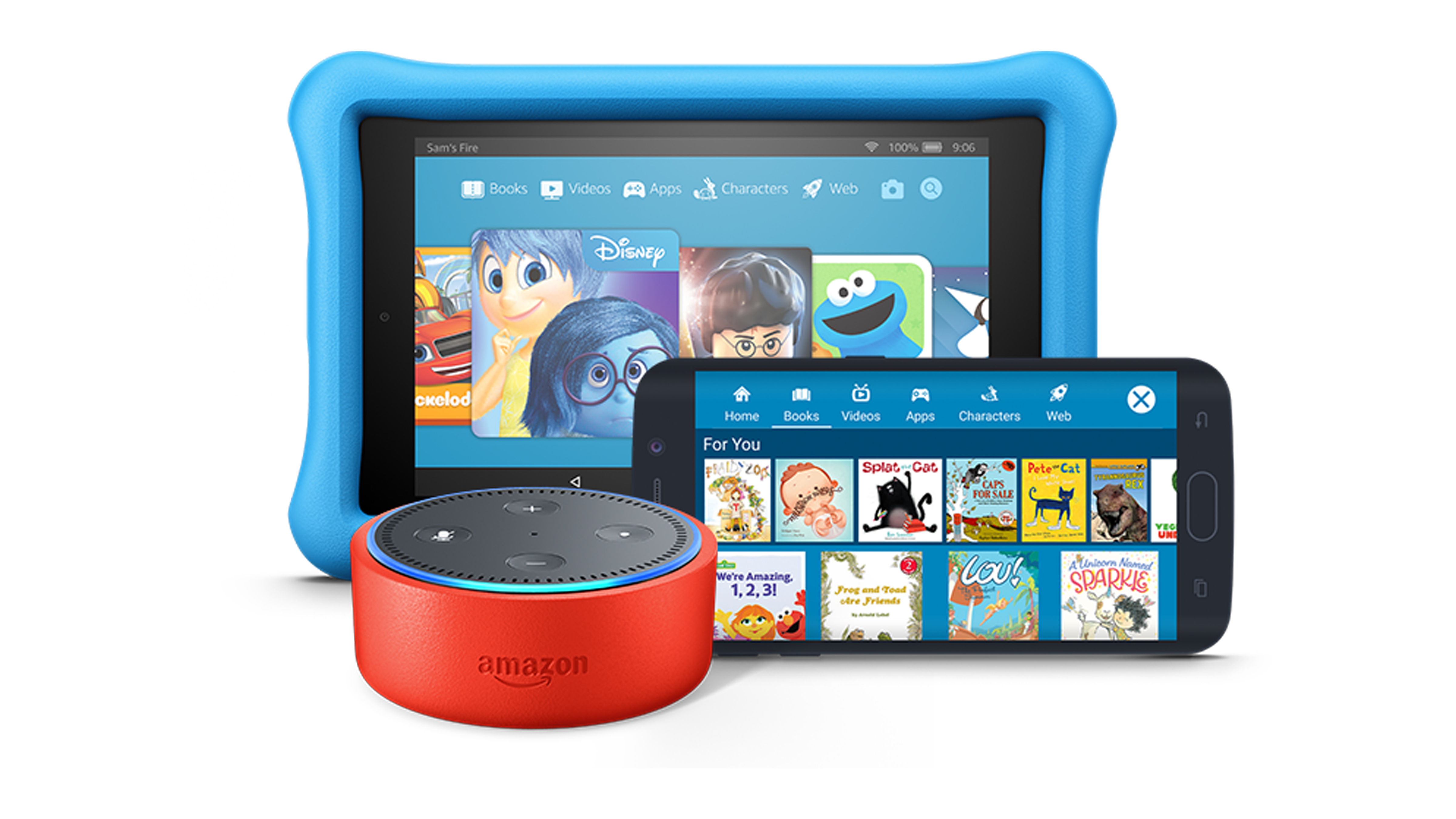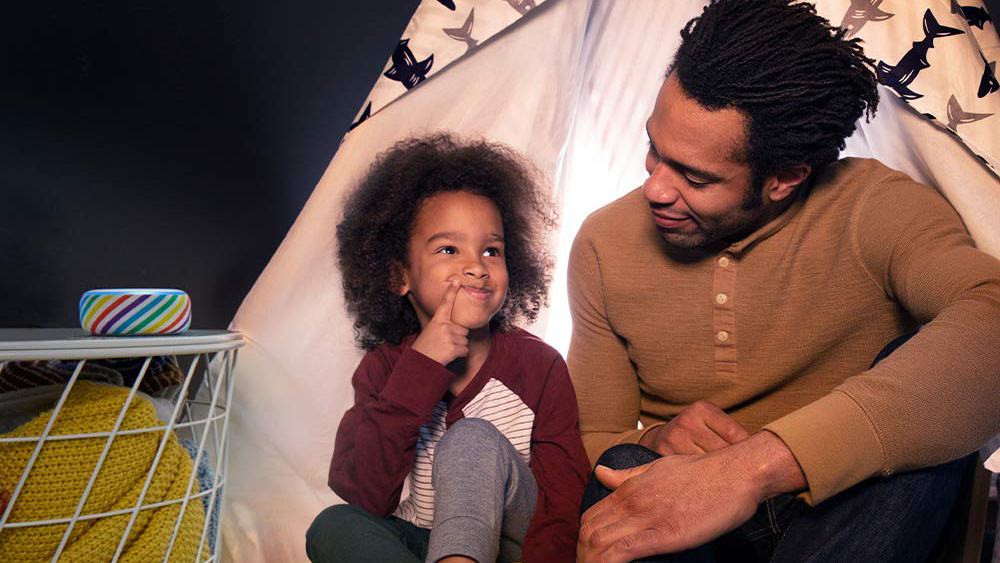Are smart speakers really safe for children?
Smart speakers with A.I. assistants are constantly listening to the world around them, waiting for commands while soaking in whatever dialogue is within earshot—some of which is actually screened by employees at Google and Amazon.
Unfortunately, that means Alexa, Google Assistant and Siri are constantly recording the conversations of users of all ages, including your kids.
As you might expect, that doesn’t sit right with a lot of people. Parents and advocacy groups have voiced their issues with the ability of Alexa and her ilk to record kids without explicit consent, not to mention the lack of an easy ability to purge that data at will. In June, a lawsuit was filed in Seattle federal court that alleges that Amazon specifically is violating child privacy laws in at least eight U.S. states by capturing audio from millions of children.
Amazon, for its part, denies any wrongdoing. And the company has gone a bold step further by recently releasing a new Echo Dot Kids Edition, a candy-coated, rainbow-plastered version with extra parent-pleasing perks such as a free subscription to its FreeTime content service and replacements for damaged units.
As appealing as that might sound for parents, are devices like the Amazon Echo and Google Home really as kid-friendly as their makers want you to believe? We asked a couple of kids’ tech experts for their take.
Convenience at the expense of privacy
By their very nature, smart speakers have to constantly be listening with their far-field microphones to be useful. If you had to go up to your Echo and press a button every time you had a question, needed to set a reminder, or wanted to ask about the weather, would you even use it half as much? Would you even need it at all, given the myriad smartphones, tablets, and computers that might be in your home?
“These devices collect information that can be helpful in carrying out the simple demands for which the devices were intended, but it is important to understand that this information can be stored and possibly shared or hacked.”
Dr. Pamela Roggeman
It’s part and parcel of owning a smart speaker, but according to Dr. Pamela Roggeman, academic dean of the University of Phoenix College of Education, many parents aren’t adequately aware of the unseen downsides of that kind of unfettered data collection.
“Parents have been inundated with advice on how they should nurture a healthy relationship between their kids and technology for years now, but not much of that discussion has included technology that kids are accessing without their parents’ consent, or even awareness such as smart assistants/speakers that quietly ‘listen’ to the room,” says Roggeman. “These devices collect information that can be helpful in carrying out the simple demands for which the devices were intended, but it is important to understand that this information can be stored and possibly shared or hacked.”

Amazon and Google need to do better
The tide may be turning on that front, as efforts such as the aforementioned lawsuit draw more attention to privacy concerns with smart speakers: The Amazon Echo and other similar devices quickly became commonplace in millions of homes, but there’s growing pushback to the idea that such constant “surveillance” is worth the provided benefits and convenience.
Deral Heiland, internet of things (IoT) research lead at technology security firm Rapid7, believes that such devices provide a learning experience for children and that included parental tools should be harnessed to make them as kid-friendly as possible. However, he also says that Amazon must be able to rapidly tackle concerns and put parents’ minds at ease.
“The issues pointed out by privacy and safety advocates are concerning. Amazon should immediately address these issues,” says Heiland. “Consumers should have full control of their personal data and voice recordings and have the ability to remove/purge this data at will. If some data is needed for improving the product, this data should then be immediately anonymized to prevent associating.
“Also, while this data is in Amazon hands, they must take all actions necessary to protect that data from unauthorized access. This should apply to all IoT technology, whether it’s an Amazon product or not. Privacy issues are important and must be addressed to consumer’s satisfaction.”
“With children-based technology, extra precautions should be taken by both Amazon and parents … Amazon must work harder and faster to make their products capable of keeping children safe, protect their privacy, and not expose them to anything that is inappropriate.”
Deral Heiland
No product will ever be perfect, and there are lessons to be learned along the way—but Heiland’s takeaway is that Amazon must be extra-careful when it comes to kids’ technology.
“With children-based technology, extra precautions should be taken by both Amazon and parents,” he says. “Like any product, our good intentions will often fail, but when it does there is no need to throw the baby out with the bath water, figuratively speaking. Amazon must work harder and faster to make their products capable of keeping children safe, protect their privacy, and not expose them to anything that is inappropriate.”

Can smart speakers be ‘kid-proof’?
Continued advocacy for privacy enhancements and changes may ultimately result in action, but whether or not that happens, Roggeman suggests that parents consider the full picture of what they’re bringing into their homes.
“The easiest way to kid-proof the smart speaker is one of the hardest things to do: get up out of your recliner and push the ‘mute’ button on the device.”
Dr. Pamela Roggeman
If you’re comfortable with the potential privacy tradeoff and feel pretty confident that there’s no real danger, that’s entirely your decision to make. On the other hand, if you’re left feeling uneasy about the situation, are the perks really worth it?
“The easiest way to kid-proof the smart speaker is one of the hardest things to do: get up out of your recliner and push the ‘mute’ button on the device,” she says. “But this is counterintuitive for why the device was purchased in the first place.”
And for all that Amazon and other companies might do to make their smart speakers safer for kids, Heiland suggests that there’s no foolproof solution to every dilemma—and that children are uniquely poised to find their way around such restrictions anyway.
“‘Kid-proof’ is an oxymoron. Place any technology in front of a child and say, ‘You are not allowed to do this or that,’ and watch what happens,” he says. “I find children to be some of the most amazing hackers, capable of always finding ways around controls and restrictions. So good luck with this one. Maybe Amazon needs to hire a few to test their tech security controls.”
Powered by WPeMatico



comment closed